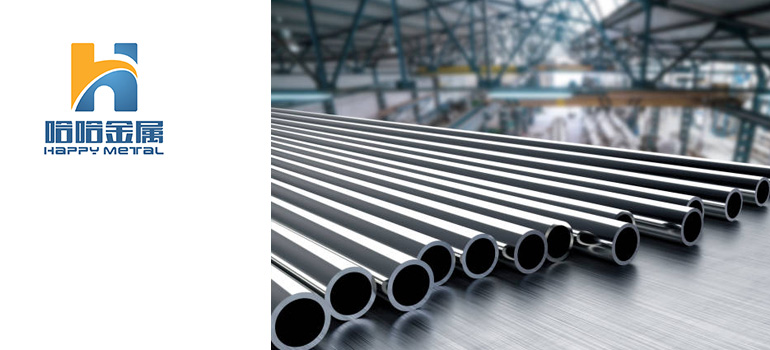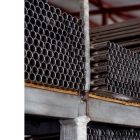The types of metal you use determines the level of corrosion you experience. But what is corrosion? Corrosion is what happens when a metal reacts with something in its environment, like oxygen or water. This can lead to the metal becoming weaker, and in some cases, it can even cause the metal to disintegrate completely. So, it’s important to choose metals that won’t rust so they can stand up to the weather and keep their shape.
There are a lot of corrosion-resistant metals you can choose from, and each has its own pros and cons that depend on your needs. In this article, we’ll focus on five types of metal that are corrosion-resistant and don’t rust. Let’s dive in.
- STAINLESS STEEL
When people think of corrosion-resistant materials, stainless steel is probably the first thing that comes to mind. But many people still don’t know what stainless steel is made of, what kinds of stainless steel there are, when each kind works best, and when it doesn’t work so well.
The term “stainless steel” refers to carbon steels that have had additional chromium added to them. The chromium content contributes to their resistance to rust and other forms of deterioration. Stainless steels often have molybdenum, nickel, or other alloying elements added to them to make them more resistant to corrosion. These elements affect not only how resistant stainless steel is to corrosion but also how strong it is, how hot it gets, and how magnetic it is.
Because there are so many ways to mix and match alloying elements, stainless steel comes in many different grades and types. Austenitic, ferritic, and martensitic are the three main families of stainless steel. These three classes are the most popular ones, though there are others.
Patina, which is a thin layer of oxide on the surface of the metal, can make the top of copper look green over time. The formation of a patina on copper is a natural process that occurs over decades and is not the same as rust. Patina can change the way copper looks, but it can also act as a protective layer that keeps the metal underneath from rusting anymore.
Copper corrosion can be caused by a number of things, such as high humidity, metal fatigue from vibrations over time, and chemical reactions between different metals. Copper can also be damaged by acid rain and pool chemicals, which can cause acid corrosion.
To protect copper from corrosion, it can be polished with a metal polish or homemade mixture and a clean cloth. Copper alloys, such as brass and bronze, can also be polished to preserve their sheen. In addition, keeping copper away from acidic substances and maintaining a reasonable humidity level can help prevent corrosion.
Stainless steel, like the other types of metal we’ll be talking about, is resistant to corrosion but not immune; corrosion is still possible in certain environments.
- ALUMINIUM METAL
Aluminum is resistant to corrosion, just like stainless steel, and is used a lot in places where the weather is very harsh. The aluminum oxide layer that forms on its surface when exposed to oxygen makes the metal resistant to corrosion. Aluminum oxide is more long-lasting than aluminum itself, safeguarding the metal’s integrity. In contrast, iron oxide (rust) flakes off and lets more iron oxide form.
Aircraft fuselages and wings are just two examples of where aluminum is widely used in aerospace. When it comes to the aerospace industry, aluminum’s corrosion resistance is a major selling point because it reduces the frequency with which overhauls are necessary. Aluminum’s resistance to corrosion makes it less likely that it will taint food and drinks, so it is widely used in this area. The marine, automotive, electrical, and construction industries all benefit from industrial use.
Aluminum is usually more expensive than regular carbon steel, even though it costs less than some types of stainless steel. Some grades of aluminum are more affordable than others, and there are many to choose from. As an added bonus to its corrosion resistance, aluminum is also a better conductor and about a third as light as stainless steel or carbon steel.
- COPPER
Copper is a metal that is highly valued because it doesn’t rust and can stand up to the elements. It is often used to make electrical wires, pipes, and roofing materials because it is a good conductor of electricity. But what makes copper so resistant to corrosion and rusting?
One of the main reasons copper is so corrosion-resistant is because it forms a thin layer of oxide on its surface when it is exposed to the air. This layer of oxide stops oxygen from reacting with the metal, which keeps it from rusting further. Copper is also resistant to a wide range of chemicals, including acids and bases, which makes it an ideal choice for use in a variety of industrial applications.
Copper is known for being strong and durable, as well as being resistant to corrosion. It is a strong and flexible metal, which makes it ideal for use in a variety of applications, such as automotive parts, aircraft, and construction materials. copper is also resistant to wear and tear, which means it can hold up well in high-stress environments.
Overall, copper is a great choice for a wide range of uses because it is strong, durable, and resistant to corrosion. It is a versatile and reliable metal that can stand up to the elements and keep its shape. Because of this, it is used in many different industries.
- BRONZE
Bronze is an alloy made of copper and tin. It is very resistant to corrosion and lasts a very long time. Its resistance to corrosion by saltwater makes it a popular choice for use in marine settings. Bearings, bushings, and other mechanical components are frequently made out of bronze.
But what is it about bronze that prevents it from rusting and corroding? When bronze is exposed to air, a thin layer of oxide forms on its surface. This is a major cause. This oxide layer protects the metal underneath it from further oxidation by stopping oxygen from attacking the metal. Bronze is used in many different kinds of industrial settings because it is strong and doesn’t rust.
Bronze is prized not only for its resistance to corrosion but also for its strength and longevity. Being both durable and malleable, it finds use in everything from car components to airplane wings to building materials. In addition to its other great qualities, bronze is also very durable, which makes it a good choice for use in tough situations.
Because of its resistance to corrosion, strength, and durability, bronze is a versatile metal that can be used in many contexts. It’s a popular material in many fields because it’s strong and can be shaped in different ways. It can also stand up to the weather without changing shape.
- GALVANIZED STEEL
When steel is coated with zinc to prevent corrosion, it is called galvanized steel. By making a physical barrier between the metal and its surroundings, the zinc coating keeps oxygen and moisture from causing rust to form on the steel.
The corrosion-resistant properties of galvanized steel make it a popular material in construction, automobiles, and other fields. To what extent does it prevent rust and corrosion, though?
Galvanized steel’s ability to resist corrosion depends on a number of things, such as the type and thickness of the zinc coating, the type of steel it is put on, and the environment in which it is used. As a rule, galvanized steel has a high level of resistance to corrosion, but it is not completely impervious.
Galvanized steel fasteners, in particular, have been found to resist corrosion exceptionally well. These zinc-coated, high-strength studs will stand up to the elements for years to come. They are often used outside or in the water, where they are exposed to all kinds of weather. Galvanized steel fasteners have high corrosion resistance and durability, especially in chlorinated water.
Galvanized steel is resistant to corrosion, but this can depend on things like where it is used. Factors like humidity, air pollution, and the presence of certain chemicals can reduce galvanized steel’s corrosion resistance.
Galvanized steel is very resistant to rust and corrosion, but it isn’t completely safe from these things. Its ability to resist corrosion and rust depends on many things, such as the type and thickness of the zinc coating, the type of steel it is put on, and the environment in which it is used.
In conclusion, corrosion is a common problem that can make metal weaker and less useful over time. However, there are several types of metal that are highly resistant to corrosion and won’t rust, including stainless steel, aluminum, bronze, copper, and titanium. Each of these metals has different qualities that make it good for different uses. They are all known for being able to withstand the elements and keep their shape.
You maybe interested in the following: The different between Stainless steel sheet and plate




